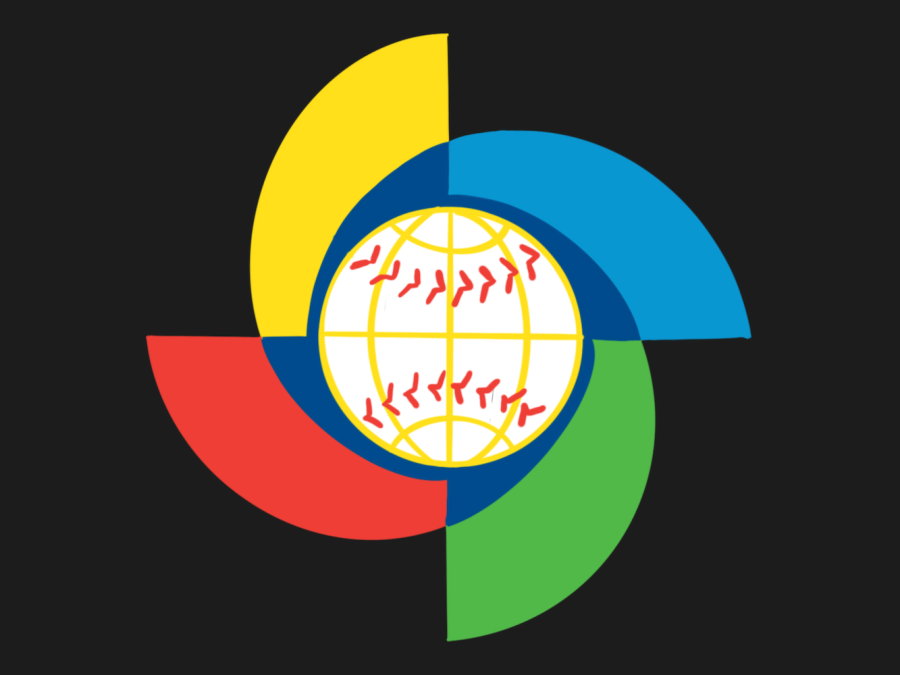Who NYU cheered for at the World Baseball Classic
Twenty countries were represented at the World Baseball Classic, giving NYU students a variety of teams to root for.
The 2023 World Baseball Classic ran from March 7-21. (Illustration by Aaliya Luthra)
March 24, 2023
Many different storylines dominated the World Baseball Classic — from the highly anticipated at-bat between Shohei Ohtani and Mike Trout, to the vast array of countries that made statements during a series of legendary games. The tournament held the same gravity as the FIFA World Cup does for the soccer world.
The WBC has not come without controversy, though, as key stars faced significant injuries during the contests. New York Mets’ closer Edwin Díaz suffered a season-ending knee injury, and the Houston Astros’ star second baseman Jose Altuve fractured his thumb while participating in the tournament. This led to many experts criticizing teams for letting their players take part in something that has no bearing on the Major League Baseball season.
Despite the casualties, players and fans of participating countries have continued to stand by their belief that they made the correct decision to play.
“No matter the position you play, the most important thing is that we are representing our country and we have one name, Venezuela,” Mets third-baseman Eduardo Escobar told The Wall Street Journal.
The meaning of the WBC is far-reaching — not only are the players affected, but those off of the field are as well.
At a diverse school like NYU, which is ranked No. 1 in the nation for international student representation, each of the 20 countries represented in the WBC are also represented at the university.
Fernán González, an NYU sophomore from Mexico, said his country’s record at this year’s tournament meant a lot to him.
“To see Mexico make it this far in the World Classic baseball series means a lot not only to the baseball players, but to every athlete in every sport,” said González. “It shows how great athletes can come out of Mexico, how we can be globally recognized because of it and that the government should take sports culture more seriously.”
Though the WBC’s impact was remarkable across the globe, its footprint in Japan was astounding.
Japan’s win over Korea on March 10 drew 62 million viewers in Japan alone, according to NBC Miami — more than the most-watched World Series game ever. For reference, there were fewer than 13 million viewers of the World Series last year.
The tournament concluded with a championship game between Japan and the United States, which became the most-watched WBC game ever in the United States, with nearly 4.5 million viewers. Japan defeated the reigning champions 3-2 in a game that was full of excitement from start to finish.
“For the Japanese baseball world, and the Japanese team playing in the United States, it’s something I think that we’re hoping the Japanese young people will think, ‘Yes, I definitely want to play in this environment,’” said Japan’s manager Hideki Kuriyama in a post-game press conference.
Will Farnham, a Japanese American student at NYU, attended the finals in Miami. He told WSN that many Japanese fans stayed for the post-game celebration.
“Definitely more kids are going to choose baseball over soccer because of this moment,” Farnham said.
Players, managers and fans can all admit that this event is bigger than any other baseball event. Giving players the opportunity to represent their countries gives baseball a new meaning.
In a March filled with NCAA basketball, NBA games, NFL free agency and NHL games, the game of baseball clearly won. It is reasonable to say that baseball needs more global events such as the WBC to grow the game internationally. The impact it has on these 20 countries is invaluable to families around the world, students at NYU included.
Contact Miller Romm at [email protected].
























































































































































